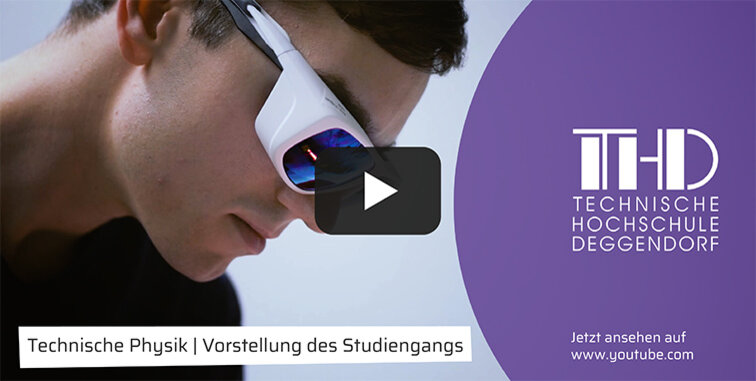Do you Love Challenges?
Gain Practical Skills and a Creative Mindset for your Future
We provide support for internships, starting a job in a company, or setting up your own business

Foundations for new technologies and applications
In the Engineering Physics degree programme, students learn how to apply the laws of nature to new technologies. Autonomous driving, automatic monitoring of intensive care patients and general artificial intelligence rely on data from modern sensors. Future tap-proof communication will be based on quantum cryptography. This fundamental knowledge is conveyed in a clear and comprehensive manner. Students learn to think analytically and find solutions in both the lecture hall and the laboratory. By bridging the gaps between physical research, technical development and application, graduates of this degree programme find employment in many areas, for example in data processing, project planning and software, or in research and development in industrial laboratories, universities and large research institutions.
Fact Sheet Engineering Physics
Degree: Bachelor of Engineering (B.Eng.)
Duration: 7 semesters (3.5 years)
ECTS points: 210
Start: October (winter semester)
Location: Deggendorf
Taught in: German
Application period: 15 April - 15 July
Admission requirements:
- General German university entrance qualification, or please check your eligibilty at the DAAD if you own an international qualification
- Language requirements
Prerequisites: Knowledge of basic scientific subjects is an advantage
Postgraduate opportunities:
- M.Sc. Applied Research in Engineering Sciences
- M.Sc. Electrical Engineering and Information Technology
- M.Eng. Mechanical Engineering
Fees:
- No tuition fees, only student union fee
- International students from non-EU/EEA countries are required to pay service fees for each semester. Click here to read about our service fees.
Enquiries:
- General information about studying at DIT: Student Advice & Support
Career Prospects
Engineering Physics is concerned with the application of physical knowledge to future-oriented technologies, as well as with environmentally friendly and resource-efficient processes and products. Engineering Physics therefore covers both fundamental and modern technologies such as electronics, optics and lasers, microcontrollers and measurement data acquisition, sensor technology, quantum technology, data analysis and AI.
This includes the application of physical detection and measurement methods to analyse and solve technical problems, the use of software and hardware to process and evaluate measurement data, as well as mathematical and computer simulation methods for the computational logging of processes and the evaluation of chemicals in terms of their environmental compatibility.
What sets graduates of Engineering Physics at Deggendorf Institute of Technology apart from those of other degree programmes? They acquire a broad and highly applicable foundational knowledge, analytical thinking skills and the competences required to solve problems. The predominantly technical content of the programme is complemented, for example, by “Engineering Work” and “Projects in Scientific Work”, in which both working methods and the understanding of professional roles are fostered. Students practise their soft skills by working in small teams on projects and in lab courses.
It is important to us that you are thematically flexible in responding to the demands of the job market, while also acquiring a sound thematic foundation and an overview of key subject areas for potential further studies. The programme not only imparts knowledge but also provides valuable insights through the transfer of skills, enabling you to apply the theoretical knowledge you have acquired in context.
The degree programme in Engineering Physics is particularly suited to interdisciplinary work in highly innovative fields. The fields of activity of graduates in Engineering Physics range from research and development in industrial laboratories, universities and large research institutions, to roles in data processing, software, organisation, project planning and processing, production and manufacturing, sales and marketing, as well as in areas outside of Engineering Physics. Additionally, there are opportunities for freelance work, e.g. as an expert. At an international level, numerous other career options are also available.
Subject Overview
Overview of lectures and courses, SWS (Semesterwochenstunden = weekly hours/semester) and ECTS (European Credit Transfer and Accumulation System) in the Bachelor's degree Engineering Physics.
| 1. Semester | SWS | ECTS |
| Mathematical Basics | 4 | 5 |
| Informatics 1 | 4 | 5 |
| Technical English | 4 | 5 |
| Chemistry | 4 | 5 |
| Basics of Electrical Engineering 1 | 4 | 5 |
| Physics 1 | 6 | 5 |
| 2. Semester | SWS | ECTS |
| Engineering Mathematics | 4 | 5 |
| Informatics 2 | 4 | 5 |
| Projects in Scientific Work | 4 | 5 |
| Engineering Work | 4 | 5 |
| Basics of Electrical Engineering 2 | 4 | 5 |
| Physics 2 incl. Lab Course | 6 | 5 |
| 3. Semester | SWS | ECTS |
| Mathematics 3 | 6 | 7 |
| Physics 3 incl. Lab Course | 6 | 8 |
| Electronics | 4 | 5 |
| Optics and Lasers | 4 | 5 |
| Materials Science | 4 | 5 |
| 4. Semester | SWS | ECTS |
| Statistics | 4 | 5 |
| Measurement and Control Technology | 4 | 5 |
| Physics 4 | 6 | 5 |
| Microcontroller and Measurement Data Acquisitation | 4 | 5 |
| Microsystems Engineering | 4 | 5 |
| Innovation Management | 4 | 5 |
| 5. Semester | SWS | ECTS |
| Industrial Sensor Technology | 4 | 5 |
| High-frequency Sensor Technology | 4 | 5 |
| Quantum Technologies | 4 | 5 |
| Basics of Data Analysis and AI | 4 | 5 |
| Optical Measurement Technology | 4 | 5 |
| Project | 4 | 5 |
| 6. Semester | SWS | ECTS |
| Practical Module | 6 | 6 |
| Industrial Internship | - | 24 |
| 7. Semester | SWS | ECTS |
| Modelling and Simulation | 4 | 5 |
| Elective Module | 4 | 5 |
| Pract. Modern Measurement Technology | 4 | 5 |
| Colloquium | - | 3 |
| Bachelor Thesis | 2 | 12 |




